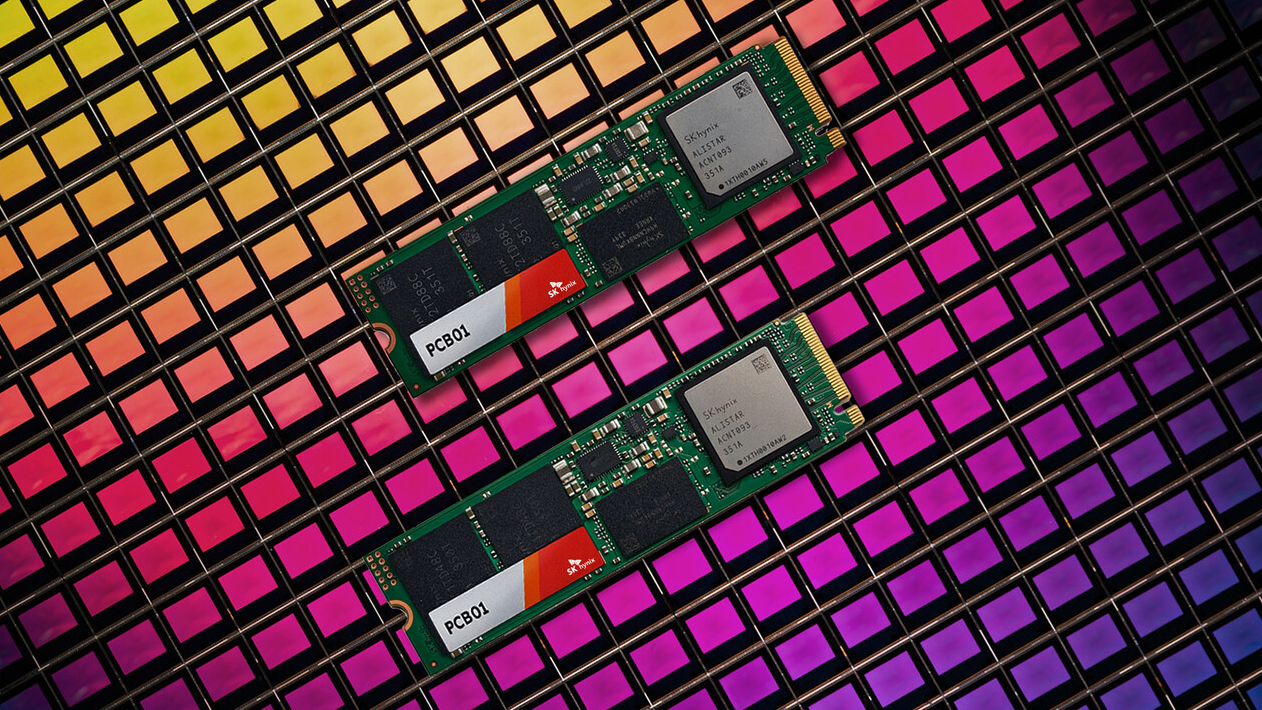
SK hynix has announced that its new NVMe SSD, known as the PCB01, is headed for mass production. The new drive is marketed heavily around AI applications, with the headlining feature being the company's claim that it can load LLMs in one second to system DRAM. We first heard about the drive at GTC 2024 earlier this year, where it was first unveiled, but we can't see any sign of features that would optimize this drive for AI usage over competing models.
The PCB01 is SK hynix's first PCIe 5.0 SSD for PCs, sporting read and write speeds of 14GB/s and 12GB/s, respectively. The new drive is reportedly 30% more power efficient than SK hynix's previous generation SSDs while offering twice the bandwidth. DRAM caching isn't mentioned in the specs, but the drive utilizes an SLC cache to boost drive performance in bursty workloads.
SK hynix heavily markets this drive as a Gen 5 SSD optimized for AI workloads. The drive is advertised as capable of loading a large language model (LLM) into system memory in less than one second to help improve the performance of AI chatbots running locally on the SSD's host system.
But AI isn't the only thing the drive is purportedly optimized for. At GTC 2024, Jae-Yeun Yunn, head of NAND product planning and enablement at SK hynix, stated that "PCB01 will not only be highlighted for its use in AI PCs, but this high-performing product will also receive significant attention in the gaming and high-end PC markets."
However, there's nothing on the specs (as far as we can tell) that actually makes this SSD perform better in AI-optimized tasks than others. The drive's performance is the same as that of other class-leading PCIe 5.0 SSDs on the market today, including the Best SSDs.
The biggest takeaway from this new drive is that it is SK hynix's first PCIe Gen 5 SSD under its own brand. Currently, the most advanced SSD you can buy from the memory manufacturer is the SK hynix Platinum P41 2TB NVMe SSD, which maxes out at 7,000 MB/s. SK hynix's upcoming PCB01 Gen 5 drive blows that away, offering 14,000 MB/s (14GB/s) of bandwidth.







